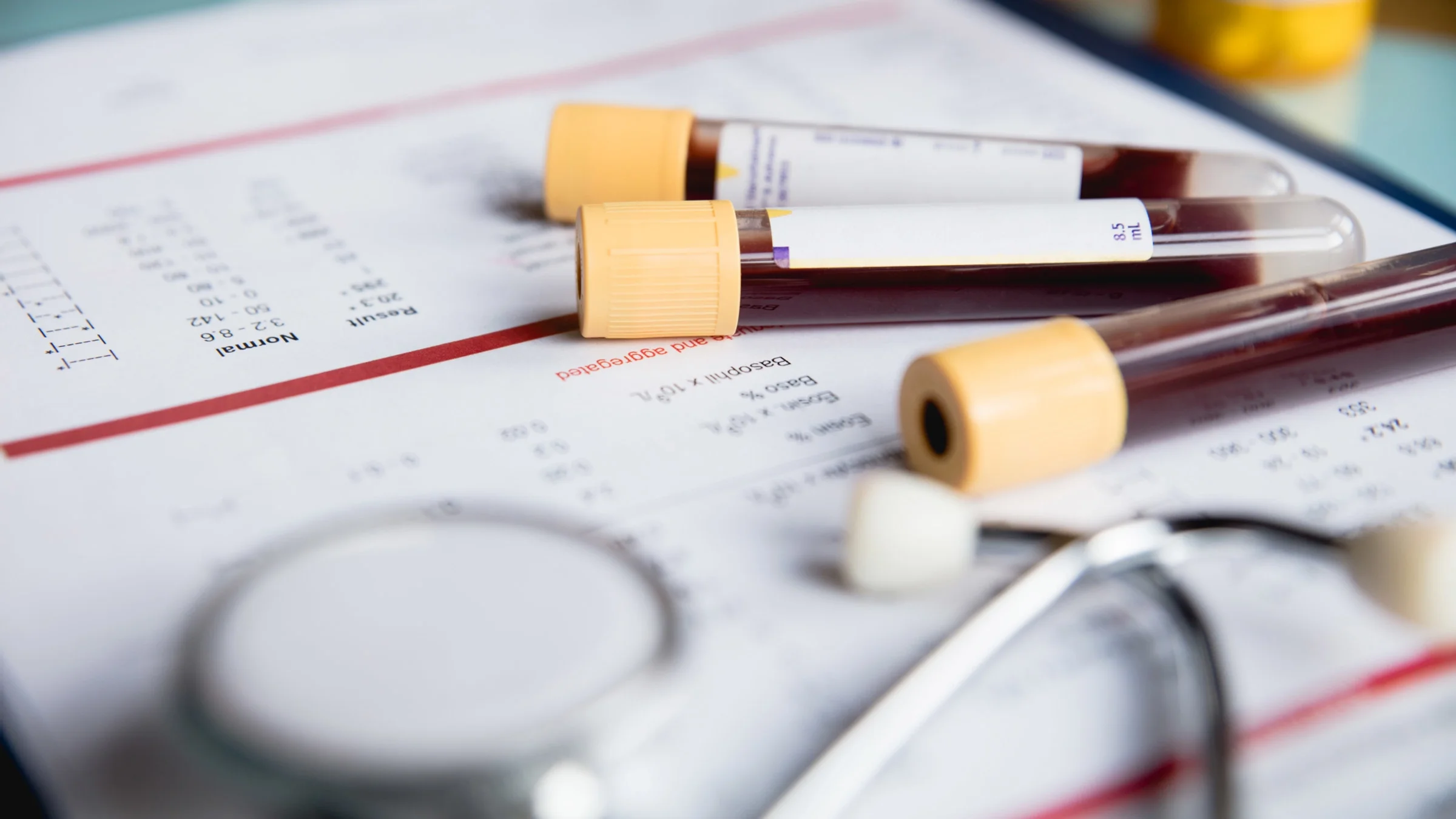Key takeaways:
A prostate-specific antigen (PSA) blood test is used to screen for prostate cancer.
Diet, exercise, and maintaining a comfortable weight are natural ways to keep your prostate healthy and lower your PSA levels.
If you already have prostate cancer, you need treatment to lower your PSA levels. Natural remedies alone can’t treat prostate cancer.
Prostate-specific antigen (PSA) is a protein made by the prostate, which is a gland located in the pelvis in males. The PSA blood test is used to screen for prostate cancer. High PSA levels can be a sign of prostate cancer or other medical conditions.
There are natural ways to keep your prostate healthy and lower your PSA levels. These things can lower your risk of developing prostate cancer. If you have prostate cancer, these methods to lower PSA can reduce your risk of developing aggressive prostate cancer.
What are normal and elevated PSA levels?
A normal PSA level is less than 3 ng/mL to 4 ng/mL (nanograms per milliliter). Most commonly, higher PSA levels mean the risk of prostate cancer is increased. Here’s how your PSA relates to cancer risk:
Less than 3 ng/mL to 4 ng/mL: The likelihood of prostate cancer is lower if your PSA level is less than 4 ng/mL. But this level doesn’t completely rule out cancer. Around 1 in 7 people with normal PSA levels find out they have prostate cancer when more testing is done (like a biopsy or digital rectal exam).
Between 3 ng/mL and 10 ng/mL: This means the risk of prostate cancer is about 1 in 4.
Higher than 10 ng/mL: At this level, there’s about a 50% chance that you have prostate cancer.
Search and compare options
Can you lower PSA levels naturally?
There are some things that increase your risk for prostate cancer that you can’t change, like your age and genes. But research shows there are steps you can take to lower your risk of developing prostate cancer. These things will help keep your prostate healthy, and the result can be a lower PSA level.
If you’ve already received a diagnosis of a high PSA level, these things can still help your overall prostate health. But while these tips might lower your PSA levels, they won’t treat the reason your PSA level is high. You’ll still need to work with your healthcare team to figure out why your PSA level is high.
If you have prostate cancer, natural remedies won’t lower your PSA levels by themselves. Prostate cancer won’t go away on its own. But these natural methods can lower your risk of developing aggressive prostate cancer. They can also lower your risk of dying from prostate cancer.
Here are six ways to naturally lower your PSA levels.
1. Eat a plant-based diet
Research suggests that eating a plant-based diet can lower your risk of developing prostate cancer. There’s also evidence that sticking to a plant-based diet also lowers the risk of developing more high-risk types of prostate cancer.
If you’ve already received a diagnosis of low-risk prostate cancer, opting for a plant-based, low-fat diet can help too.
Do vitamins increase your risk for cancer? Learn more about the link between vitamin E and prostate cancer.
Learn the signs of prostate cancer. Take a look at the five most common symptoms of prostate cancer.
Does what you eat affect your risk for prostate cancer? Yes, here are nine foods that can lower your risk for prostate cancer.
A small but important study showed that people with low-risk prostate cancer who followed a plant-based diet had lower PSA levels. They were less likely to need treatment for prostate cancer. And they could stick with active surveillance longer than those who didn’t eat a plant-based diet. This means a plant-based diet could lower the risk of prostate cancer progression.
2. Get more exercise
People who get little or no exercise are more prone to developing aggressive prostate cancer. So, getting moderate exercise for 20 minutes, 3 times a week can keep your prostate healthy.
If you already have prostate cancer, a recent clinical trial showed that exercise — specifically HIIT exercise — can lower PSA levels in people with low-risk prostate cancer.
Read more like this
Explore these related articles, suggested for readers like you.
And that’s not all: Studies show regular exercise lowers your risk of dying from prostate cancer by 30%. It can also lower the chance of prostate cancer becoming more aggressive or spreading. Regular exercise can also lower the chance of prostate cancer recurrence after treatment.
It’s not exactly clear why. But regular, moderate exercise seems to discourage prostate cancer from growing.
3. If you smoke, consider quitting
If you smoke, consider quitting. It might not lower your PSA levels, but it can save your life.
No part of the body is safe from the harms of smoking — including the prostate. People who smoke are more likely to develop aggressive prostate cancer. People who already have prostate cancer and continue to smoke are more likely to have prostate cancer recurrence. These two things mean that you’re more likely to die from prostate cancer if you smoke.
But studies show that quitting smoking can lower your risk of dying from prostate cancer. In fact, after 10 years of being smoke free, your risk of dying from prostate cancer is the same as someone who’s never smoked.
4. Choose low-fat dairy products
If you’ve received a diagnosis of prostate cancer, you don’t have to cut dairy products completely. But you should opt for low-fat or no-fat options. Studies show that high-fat dairy products, like whole milk, can increase your risk of developing more aggressive forms of prostate cancer.
5. Consider anti-inflammatory supplements
There’s some emerging data that quercetin, an antioxidant found in fruits and vegetables, can lower PSA levels. But it’s not clear if this matters when it comes to prostate cancer.
Right now, there’s no data showing that antioxidants can prevent prostate cancer or affect how prostate cancer changes over time. In fact, some supplements can increase your risk of developing prostate cancer.
Experts recommend sticking to plant-based foods to get your antioxidants and staying away from supplements unless your cancer team recommends them.
6. Manage stress
Stress alone doesn’t cause prostate cancer. But some experts believe stress can increase PSA levels. There’s no evidence that reducing your stress can lower your PSA level (yet). But controlling stress can improve your physical and mental well-being.
Experts are investigating whether stress affects people’s response to prostate cancer treatment. Right now, the relationship between stress and prostate cancer isn’t clear. But managing stress may help outcomes. Building your support network, finding a mental health professional, and getting enough sleep can all help lower stress.
What factors can falsely elevate or lower your PSA level?
There are other factors that can affect the PSA level besides prostate cancer. Some things make the PSA levels higher or lower, which can interfere with interpreting PSA results.
Increased PSA levels
Things that can increase PSA levels include:
Being older
Benign prostatic hyperplasia (BPH), a condition that commonly develops as people get older and the prostate grows in size
Prostatitis, which is inflammation or infection of the prostate
Hormone medications, like testosterone
Ejaculation, which can raise the PSA level for a short period of time
Riding a bike, or anything that puts pressure on the pelvic area
Trauma to an area near the prostate, for example from having a catheter placed
Lowered PSA levels
Things that can lower the PSA level include:
Medications: Testosterone-lowering medications like finasteride or dutasteride can also reduce your PSA level.
Obesity: Body fat can change hormone levels. People with obesity have a larger volume of blood in the body, which dilutes the PSA level. This could lead to a normal PSA level reading even though cancer is present.
Liver disease: Conditions like cirrhosis can lower PSA levels.
Frequently asked questions
There’s no guaranteed way to quickly lower your PSA. Changing your diet and getting more exercise can help. But it also depends on why your PSA is high. Work with your healthcare team to figure out why your PSA level is high. They can help you determine the best way to lower your PSA levels.
PSA levels higher than 4 ng/mL are considered abnormal. You may need further tests to see what’s causing an elevated PSA level. PSA levels higher than 10 ng/mL are often linked to prostate cancer.
To get the most accurate results, avoid anything that can affect your PSA levels. This includes:
Working out
Ejaculation
Getting a digital rectal exam
Be sure to tell your healthcare team about all your medications and supplements, procedures, and medical conditions.
There’s no guaranteed way to quickly lower your PSA. Changing your diet and getting more exercise can help. But it also depends on why your PSA is high. Work with your healthcare team to figure out why your PSA level is high. They can help you determine the best way to lower your PSA levels.
PSA levels higher than 4 ng/mL are considered abnormal. You may need further tests to see what’s causing an elevated PSA level. PSA levels higher than 10 ng/mL are often linked to prostate cancer.
To get the most accurate results, avoid anything that can affect your PSA levels. This includes:
Working out
Ejaculation
Getting a digital rectal exam
Be sure to tell your healthcare team about all your medications and supplements, procedures, and medical conditions.
The bottom line
Prostate cancer isn’t the only condition that can affect your PSA level. Because of this, it can be difficult to interpret your test results. There are ways to naturally lower your PSA level, like following a plant-based diet and regular exercise.
But it’s important to figure out what’s causing your high PSA levels since natural methods can’t treat prostate cancer. If you’ve already received a diagnosis of prostate cancer, these methods can lower your risk of developing aggressive prostate cancer.

Why trust our experts?


References
American Cancer Society. (2023). Screening tests for prostate cancer.
American Heart Association. (2024). How smoking and nicotine damage your body.
Aref, A. T., et al. (2018). The inverse relationship between prostate specific antigen (PSA) and obesity. Endocrine-Related Cancer.
Campbell, B. (2022). Plant-based diets and prostate cancer: Two new studies suggest benefits of plant-based diets on prostate cancer risk, outcomes. Prostate Cancer Foundation.
Ghafouri-Fard, S., et al. (2021). Emerging impact of quercetin in the treatment of prostate cancer. Biomedicine & Pharmacotherapy.
Jones, M. R., et al. (2016). Racial/ethnic differences in duration of smoking among former smokers in the National Health and Nutrition Examination Surveys. Nicotine & Tobacco Research.
Kang, D., et al. (2021). Effects of exercise on cardiorespiratory fitness and biochemical progression in men with localized prostate cancer under active surveillance: The ERASE randomized clinical trial. JAMA Oncology.
Koc, G., et al. (2013). The effects of cigarette smoking on prostate-specific antigen in two different age groups. Canadian Urological Association Journal.
Langlais, C. S., et al. (2021). Post-diagnostic dietary and lifestyle factors and prostate cancer recurrence, progression, and mortality. Current Oncology Reports.
Ornish, D., et al. (2005). Intensive lifestyle changes may affect the progression of prostate cancer. The Journal of Urology.
Prostate Cancer Foundation. (2022). Prostate cancer and eggs, dairy, supplements: Your questions answered (part 1).
Sperling, D. (2022). Can stress and anxiety affect my PSA results? Sperling Prostate Center.
Worthington, J. F. (n.d.). The connection between prostate cancer and smoking (part one of three). Prostate Cancer Foundation.
Worthington, J. F. (2018). Make sure your PSA is as accurate as possible. Prostate Cancer Foundation.
Worthington, J. F. (2019). Smoking and race. Prostate Cancer Foundation.
Worthington, J. F. (2020). Stress and prostate cancer. Prostate Cancer Foundation.
Worthington, J. F. (2023). Monkey wrench in the works: How exercise helps sabotage prostate cancer. Prostate Cancer Foundation.
Worthington, J. F. (2024). Exercise is the turbo boost to a healthy prostate: Your pro-active fight against prostate cancer - part 3. Prostate Cancer Foundation.

















